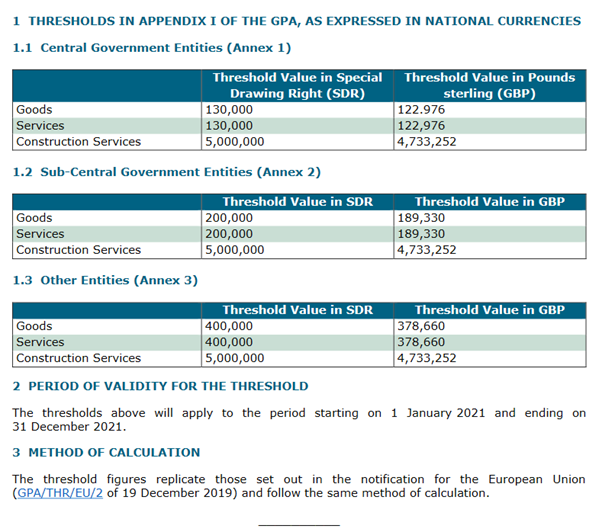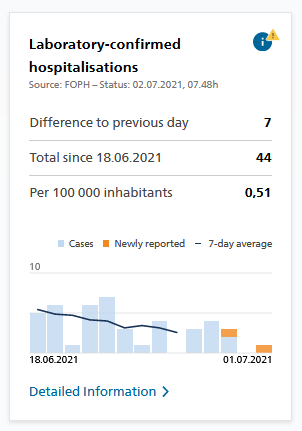
It’s a bad idea because:
If the UK does this, its companies will not automatically be able to bid for procurement contracts abroad—in the EU, US, Japan, Canada, Australia, NZ, etc
If @UKLabour @LabourIntlTrade @Keir_Starmer @RachelReevesMP insist, here are their options …
1/9
If the UK does this, its companies will not automatically be able to bid for procurement contracts abroad—in the EU, US, Japan, Canada, Australia, NZ, etc
If @UKLabour @LabourIntlTrade @Keir_Starmer @RachelReevesMP insist, here are their options …
1/9
https://twitter.com/CoppetainPU/status/1411438711741595654
OPTION ONE: Make a loud noise about this to win votes, but don’t actually do it. Britain would not violate the WTO Government Procurement Agreement (GPA)
This is not an original thought. Politicians do it everywhere
2/9 wto.org/english/tratop…
This is not an original thought. Politicians do it everywhere
2/9 wto.org/english/tratop…

OPTION TWO: Claim this is necessary for national security.
Again, this is not an original thought. It comes straight out of the Donald Trump playbook.
But it does create havoc for the rules-based international trading system
3/9 wto.org/english/docs_e…
Again, this is not an original thought. It comes straight out of the Donald Trump playbook.
But it does create havoc for the rules-based international trading system
3/9 wto.org/english/docs_e…

OPTION THREE: What the hell, let’s just ignore our international commitments
Yet another unoriginal thought. In this case it would not distinguish @UKLabour and @Keir_Starmer from the present UK government
4/9
Yet another unoriginal thought. In this case it would not distinguish @UKLabour and @Keir_Starmer from the present UK government
4/9
OPTION FOUR: Do it in the constraints of UK’s GPA commitments. In other words, not for any of the agencies listed except for small contracts worth less than the thresholds.
These are the commitments:
Cover: docs.wto.org/dol2fe/Pages/S…
(34-page list) docs.wto.org/dol2fe/Pages/S…
5/9



These are the commitments:
Cover: docs.wto.org/dol2fe/Pages/S…
(34-page list) docs.wto.org/dol2fe/Pages/S…
5/9




OPTION FOUR (continued)
That 34-page list includes almost every central and local government agency.
Here are the thresholds in pounds
A school in West Leeds can insist on UK-made pencils, but only in batches worth less than £189,330
6/9 docs.wto.org/dol2fe/Pages/S…
That 34-page list includes almost every central and local government agency.
Here are the thresholds in pounds
A school in West Leeds can insist on UK-made pencils, but only in batches worth less than £189,330
6/9 docs.wto.org/dol2fe/Pages/S…

OPTION FIVE (1): Withdraw from the GPA
Can be done without leaving the WTO. GPA is a stand-alone plurilateral agreement (signed by only some WTO members)
But leaving it means UK companies would lose automatic access to government contracts in present and future signatories
7/9
Can be done without leaving the WTO. GPA is a stand-alone plurilateral agreement (signed by only some WTO members)
But leaving it means UK companies would lose automatic access to government contracts in present and future signatories
7/9

OPTION FIVE (2)
Leaving the GPA = losing rights to procurement contracts in Armenia, Canada, Australia, EU, HK, Iceland, Israel, Japan, Rep Korea, Liechtenstein, Moldova, Montenegro, NZ, Norway, Switzerland, Singapore, Taiwan, Ukraine, US
8/9 wto.org/english/tratop…
Leaving the GPA = losing rights to procurement contracts in Armenia, Canada, Australia, EU, HK, Iceland, Israel, Japan, Rep Korea, Liechtenstein, Moldova, Montenegro, NZ, Norway, Switzerland, Singapore, Taiwan, Ukraine, US
8/9 wto.org/english/tratop…

OPTION FIVE (3)
Also future signatories: Albania, Brazil, China, Georgia, Jordan, Kazakhstan, Kyrgyz Republic, North Macedonia, Oman, Russian Federation, Tajikistan
Think again @UKLabour @LabourIntlTrade @Keir_Starmer @RachelReevesMP?
9/9 theguardian.com/politics/2021/…
Also future signatories: Albania, Brazil, China, Georgia, Jordan, Kazakhstan, Kyrgyz Republic, North Macedonia, Oman, Russian Federation, Tajikistan
Think again @UKLabour @LabourIntlTrade @Keir_Starmer @RachelReevesMP?
9/9 theguardian.com/politics/2021/…

PS suggested by @StevePeers:
1/2. The GPA includes dispute settlement (Art 20) wto.org/english/docs_e….
1/2. The GPA includes dispute settlement (Art 20) wto.org/english/docs_e….

2/2. Countries can also modify their commitments under complex procedures (Art19). Others can withdraw “substantially equivalent commitments”.
A blanket policy means withdrawing everything. Other countries would also withdraw all rights from the UK
wto.org/english/docs_e…



A blanket policy means withdrawing everything. Other countries would also withdraw all rights from the UK
wto.org/english/docs_e…




• • •
Missing some Tweet in this thread? You can try to
force a refresh














